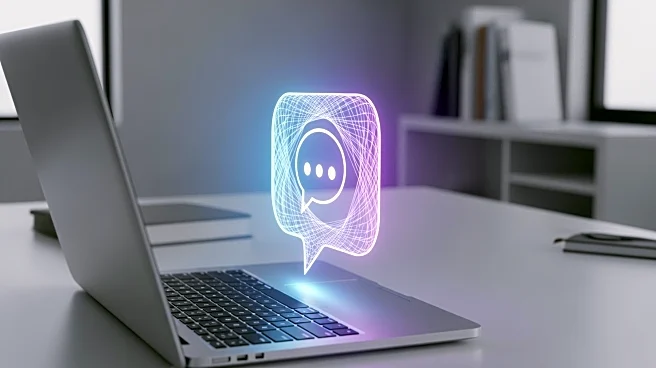What's Happening?
Educators are increasingly exploring the use of messaging apps like Discord to facilitate peer-to-peer learning among students. According to the Collaborative for Academic, Social, and Emotional Learning (CASEL), these platforms can help students develop
leadership, accountability, and organizational skills. Discord allows students to join 'servers' or groups focused on specific subjects or classes, providing a virtual space for collaboration similar to traditional study groups. Christine Elgersma from Common Sense Media highlights the convenience technology offers for students who cannot meet physically. However, educators must teach responsible digital communication to ensure effective online discussions. Discord is primarily used by teachers for robotics programs and technology courses, and by high school esports teams for tournament coordination. At Universal Learning Academy in Michigan, students use Discord for both academic and extracurricular activities, enhancing their learning and networking opportunities.
Why It's Important?
The integration of platforms like Discord into educational settings represents a significant shift in how students engage with learning materials and each other. This approach can potentially improve academic achievement by fostering deeper engagement with content and developing essential group work skills. It also offers a solution to geographical and scheduling barriers, allowing students to collaborate regardless of physical location. However, the use of digital platforms also raises concerns about online safety and the potential exposure to harmful content, as highlighted by a lawsuit filed by the New Jersey attorney general against Discord. Educators must balance the benefits of these platforms with the need to protect students from online threats, ensuring that digital communication is safe and productive.
What's Next?
As the use of Discord and similar platforms grows, educators will need to establish clear guidelines and expectations for their use in academic settings. This includes defining the boundaries between collaborative learning and academic dishonesty, and ensuring that students understand the importance of responsible digital communication. Schools may also need to implement monitoring systems to safeguard students from cyberbullying and inappropriate content. The ongoing dialogue between educators, students, and platform providers will be crucial in shaping the future of digital learning environments.
Beyond the Headlines
The adoption of digital platforms like Discord in education could lead to broader cultural shifts in how learning is perceived and conducted. It challenges traditional notions of classroom learning and could democratize access to educational resources, making learning more inclusive and accessible. However, it also necessitates a reevaluation of educational policies and practices to address the ethical implications of digital communication and the role of technology in shaping student interactions.















